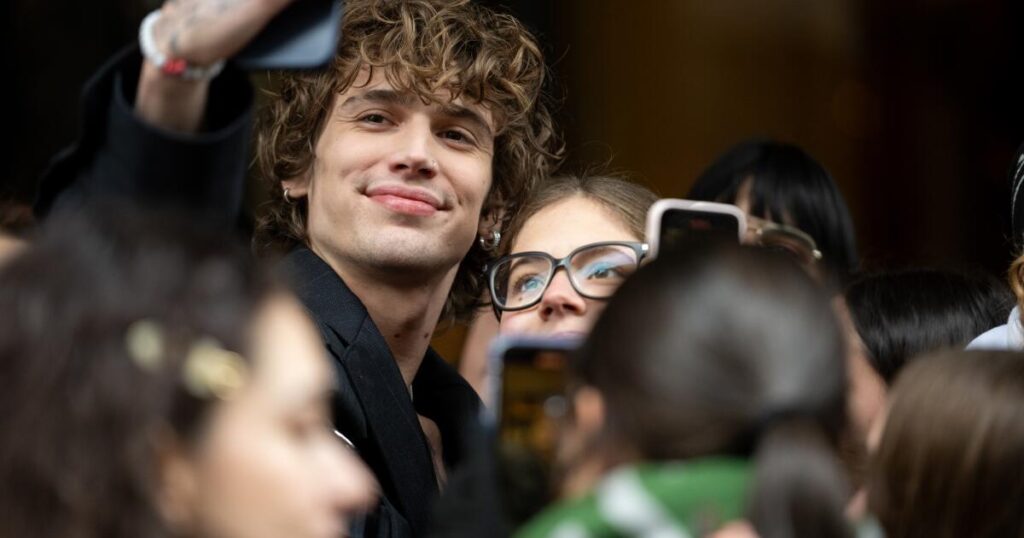Roy is a senior at Grossmont High School and lives in La Mesa.
Social media has a negative impact on teens' mental health. Increases in child trafficking, body dysmorphic disorder, sexualization of youth, suicide rates, and cyberbullying are linked to apps like Snapchat, TikTok, and Instagram. According to a national study published by the Human Trafficking Research Institute, 87 percent of underage victims recruited online in ongoing criminal sex trafficking cases in 2020 were recruited through social media.
If social media were a drug, it would have undergone years of testing to meet safety standards. However, these applications were released without proper restrictive measures in place to ensure the safety of users. The damage it is doing to America's youth is easily visible, yet efforts to regulate these apps are minimal. Social media platforms don't take complaints from parents and teachers about their products seriously. Instead, accountability for these applications falls on school administrators and responsible parents who are forced to address the effects caused by an exploitative and insensitive industry.
I started using social media when I was in middle school. The promotion of unrealistic body standards made me question my self-worth. I spent hours comparing myself to the girls who express themselves sexually on these sites. Soon, I was posting lewd content myself in order to be sexually desirable among my peers. “Likes” have become addictive and a testament to their effectiveness. I craved them, but the posts were inappropriate, so I had to hide them from my parents by creating fake accounts and blocking certain posts. This deceptive behavior resulted in isolation and depression.
The glorification of sex among teens has escalated over the past decade with the rise of social media “influencers” such as Daniel Cohn, Addison Rae, and Vinny Hacker. By expressing themselves sexually, these influencers further the logic that anyone can gain fame by expressing themselves sexually. What many adolescents do not understand is that this type of behavior makes them vulnerable to child predators who find social media an easy way to groom teens. They use these apps to prey on undeveloped minds that crave likes, comments, and connections with strangers in hopes of being discovered. There is growing evidence that relying on online feedback for self-esteem can have negative effects on young people. Teens seeking attention on social media find themselves competing with and comparing themselves to each other in hopes of getting their next post viral.
My cell phone frequently lights up with notifications from my high school informing me of missing students. Misuse of social media apps often plays a role in disappearances to some extent. It can be especially worrying when you recognize or know someone who is missing. In many of these incidents, the applications these teens were using rewarded them for spending countless hours on their phones by setting empty goals such as “streaks.” And it could have been prevented by focusing on their safety instead of encouraging inappropriate behavior. From where I sit, there appears to be little to no accountability on these social platforms.
Additionally, these apps contribute to cyberbullying. People find it easier to express themselves online than in person. There is freedom in anonymity. This makes children with special needs even more vulnerable to cyberbullying than the average user. My school has a special needs student who frequently posts on social media. These teens believe that the people appearing in their feeds are friends or supportive acquaintances. However, they are often ridiculed and lack the discernment to distinguish between kindness and sarcasm. In the age of digital connectivity, these special needs youth find themselves in a bind, unable to take responsibility for how they treat their teens.
The lack of accountability that social platforms enjoy needs to stop. It is paramount that independent researchers and technology companies work together to advance our understanding of the effects of social media on teens. When using social applications, you should promote a standard of kindness. If teens use this opportunity to shame or harass each other, there will be consequences. As a society, we need to push for more regulation and safety features on these platforms, while also teaching young people that real life cannot be replaced by a ton of selfies. Instead, it is the connections we make outside of cyberspace that define us.



